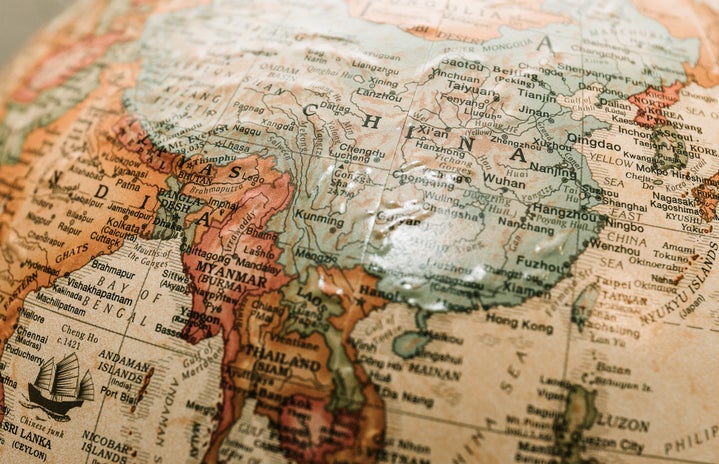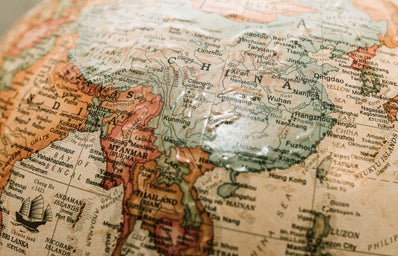A growing consensus has risen among the international human rights community and a number of public figures in favor of boycotting the Beijing 2022 Winter Olympics. Protests and demonstrations have taken place globally, and several countries are calling for the boycott in light of the ongoing Chinese repression of Uyghurs in Xinjiang. China has continued to commit a number of grave human rights abuses and mass atrocities, especially in Xinjiang, Hong Kong, and Tibet. While many international actors demand a boycott of the Games, other suggested alternatives include relocating the Games, diplomatic boycotts, removing corporate sponsors, conducting athlete-led protests, and establishing permanent diplomatic locations for the Olympic Games.
A coalition of more than 180 human rights organizations has called for an absolute boycott of the 2022 Winter Olympics in Beijing. Open letters from the coalition have maintained that participation in the Games would be tantamount to endorsing China’s mass oppression; the Chinese government has been accused of genocide against the Ughyur people in addition to repression in Tibet, Southern Mongolia, East Turkistan, and assaults against democratic rights in Hong Kong.
China continues to repress Ughyur Muslims in Xinjiang by sending them to mass detention camps, impeding upon their religious activities, and forcing re-education and indoctrination programs upon members of their communities. Reports such as that by the Newlines Institute for Strategy and Policy have recorded evidence of mass deaths and systemic torture as facets of the mass internment drive. Policies of mass sterilization and forced IUD implantation have also caused population growth in the Uyghur regions of Kashgar and Hotan to drop by a shocking 84 percent from 2015 to 2018. Millions of Ughyur people are being detained in camps without trial, and forced indoctrination and family separation are among the policies driving a cultural genoice.
It is difficult to determine the efficacy of boycott campaigns based on previous Olympic Games boycotts, especially when many of the measured impacts were largely indirect or occurred over a relatively long period of time.
Wide Scale protests based on the genocidal actions of a regime can likewise be found in the case of the 1936 Berlin Olympics, in which a number of activists and officials called for a boycott against Germany hosting the Games. A number of global leaders and influential figures, including the president of the Amateur Athletic Union, encouraged a boycott against the Games due to rising Nazism in Germany and the known persecution of political dissidents and Jewish Germans. Despite a number of short-lived protests in Czechoslovakia, Great Britain, France, the Netherlands, and Sweden, the games went ahead and 49 teams from around the world participated, more than in any previous year. Moreover, Germany also hosted the Winter Olympics that same year in Garmisch-Partenkirchen. The boycott attempts were largely unsuccessful, and Kristallnacht occurred just two years after the Berlin Games followed by the German invasion of Poland in 1939.
Similarly, the Soviet Union’s 1979 invasion of Afghanistan resulted in the largest boycott in the history of the Olympic Games. The United States led the protests against the 1980 Moscow Olympics, and around 60 other nations joined the movement. While the games did continue with approximately 81 countries represented, protests against the Soviet presence in Afghanistan continued and several participatory countries refused to attend the opening ceremony. The Soviet Union did not leave Afghanistan because of the boycott efforts, but the protests did arguably lessen the prestige it hoped to gain from hosting the games and indicated a growing international objection towards Moscow’s foreign policy objectives.
A number of International Olympic Committee (IOC) representatives have argued and advised against boycotts, citing the 1980 and 1984 Games boycotts as failed initiatives. While the 1980 and 1984 protests were largely ineffective in achieving their political objectives, they did harm the athletes who lost their opportunity to participate. For example, the 1980 Moscow Olympic protests failed to achieve their policy objectives; the Soviet Union did not pull out of Afghanistan for another decade, following diminishing domestic support and a loss of funding. Yet, 466 American athletes among athletes from the 64 other countries who joined the boycott were robbed of their chance to participate in the Olympics. A number of the athletes sued the United States Olympic & Paralympic Committee over the decision, but they lost both their cases and their Olympic dreams. The subsequent political impact of Olympic boycotts may be undecided, but the devastation faced by the affected athletes is easily discernible.
The International Olympic Committee (IOC) President Thomas Bach has argued against the Olympic Games being used as a forum for political protest, contending that “The Olympic Games are not about politics. The IOC, as a civil non-governmental organisation, is strictly politically neutral at all times.” The IOC’s Host City Contract for the 2024 Paris Games did add a binding clause regarding human rights protections and nondiscrimination, yet the requirements only apply to the organisation of the Games. Therefore, repressive regimes are still free to commit acts of genoice and human rights violations as long as their actions fall outside of the scope of organizing Olympic activities.
China’s foreign ministry has threatened a “robust response” to any boycotts, which could indicate a number of retaliations. The Chinese government is capable of disrupting a number of global talks and multilateral exchanges, such as trade forums, climate change talks, and other policy meetings. However, moving forward with the games provides the risk of validating China’s global leadership and bestowing international approval in the face of mass human rights violations. With less than one hundred days until the Games, a number of protestors have urged the IOC to reschedule the Games until a suitable alternative location can be determined.
The international community is now left with an urgent decision; they must relocate the Games, or otherwise condone genocide.


